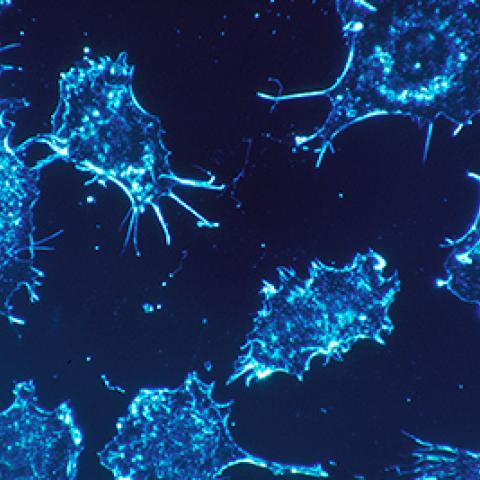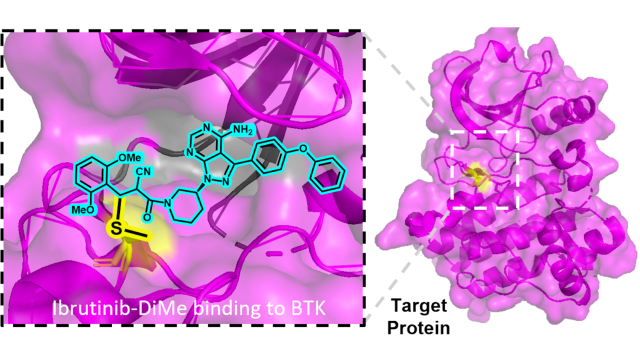
Cancer cells
Image courtesy of NCI Visuals Online
Researchers have long searched for a drug that can strongly inhibit a protein called lactate dehydrogenase (LDH) that many cancer cells rely on to create energy. Now, a consortium established by NCI has developed a new drug that has particularly effective inhibitory properties in mice. The results, published February 11, 2020, in Cell Reports, show that the drug NCI-006 is strong enough to inhibit tumor growth in vivo when combined with an additional agent.
LDH is an enzyme that cells use to create energy for themselves. “Numerous genetic models identify LDH as a critical enzyme needed for cancer development,” explains Len Neckers, Ph.D., of CCR’s Urologic Oncology Branch. “This led to the hypothesis that many cancers depend on functional LDH for their growth and survival.”
Despite this sound theory, effectively inhibiting LDH in tumors has proven challenging. Neckers’ team recently created two new drugs designed to inhibit LDH in vivo, one of which was found to almost completely inhibit LDH in two tumor models. Using an imaging technique called hyperpolarized magnetic resonance spectroscopic imaging (HP-MSRI), his team was able to watch tumors in real time as NCI-006 disrupted the process of energy production via LDH.
“We found that LDH in tumors needs to be inhibited by at least 80 percent for a significant period of time in order to observe anti-tumor activity,” says Neckers.
The detailed imaging that the researchers obtained revealed something very unusual. “Unexpectedly, HP-MRSI also revealed a rapid metabolic rewiring occurring in the tumors of mice within 30 minutes of administering the LDH inhibitor,” explains Neckers. This meant that instead of relying solely on LDH for energy production, the cancer cells started creating energy via a different mechanism, called mitochondrial respiration.
Therefore, the researchers decided to apply NCI-006 in combination with a drug called IACS-010759 that specifically inhibits this alternative pathway for energy creation. The combination of drugs was effective at stopping tumor growth in mice.
In future work, Neckers says: “We plan to apply a similar strategy to test these agents in other cancers with different metabolic profiles, including drug-resistant prostate cancer models. We are also collaborating with other NIH and extramural investigators to explore the possible benefit of transiently inhibiting LDH in normal tissues.”


